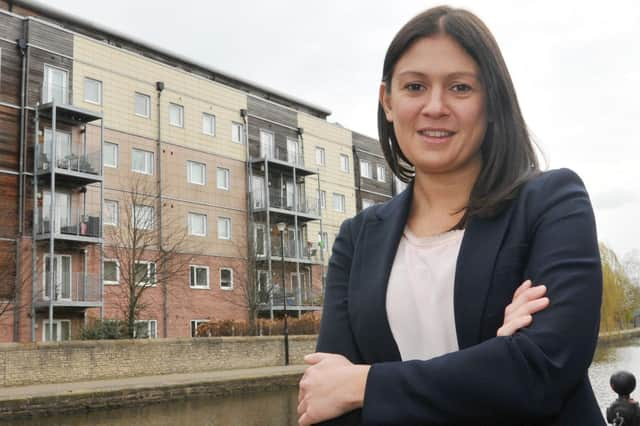Lisa Nandy MP: Another rough deal for passengers


From March this year rail fares will go up by another 3.8%, meaning average fares will rise to an astonishing 48.9% more than they were in 2010. The average commuter faces paying a staggering £3,263 more for their season ticket, an increase of £1,069 on 2010 fares. On some routes, commuters will be asked to pay almost £4,000 more for their ticket.
Average fares have risen twice as fast as wages.
This announcement piles more misery onto us here in Wigan. Too many people have to face a daily ordeal of using a crumbling, outdated and under-resourced rail system to get to work, or face gridlocked motorways instead. For seven years we have been promised a Northern Powerhouse with new investment in our trains but after 60 press releases, the Government scrapped this claiming it was unaffordable.
Advertisement
Hide AdAdvertisement
Hide AdInstead, they promised to restore plans (which they had previously scrapped) to electrify part of our track – and then in the same week announced they were taking away our trains. The direct services to Manchester Airport and Manchester Piccadilly which we have successfully defended here before is a lifeline for many commuters. There is little for rail commuters in Wigan to look forward to as we enter the New Year.
And it is not just rail where people are being given a rough deal - ONS inflation data shows bus and coach fare prices are up 20% compared to this time last year.
Since 2010 fares are up a massive 70% while bus routes across the north have been cut. All of this will heap yet more pressure on Wigan families in 2022.
We are already in the middle of a cost-of-living crisis with inflation hitting a 10 year high, energy, food and fuel costs soaring and the impact of the Government’s £20 a week cut to Universal Credit beginning to hit some families hard. As a consequence, the Citizens Advice Bureau report that one in 10 households - around 3.2 million - are struggling to pay their basic bills. One in five have already cut back on their food budget or turned off the heating to save money.
Advertisement
Hide AdAdvertisement
Hide AdThe crisis is set to get worse before it gets better with several other dangers on the horizon.
The Bank of England’s decision to raise interest rates will lead to higher mortgage repayments for many households. The Government’s National Insurance hike to fund social care is due to hit workers and businesses in the spring and Local Authorities have been given the go ahead by ministers for big increases in council tax in the next few months.
This is all at a time when public concerns about the rise of the Omicron variant and the restrictions that have been introduced are threatening to hit a number of business sectors hard once again with the Government painfully slow in offering them the support they need to get through this uncertain time. Years of Conservative austerity have hit the poorest communities the hardest. It is these communities who have felt the brunt of years of broken promises and empty words. The very communities that the Government have promised to “level up” are at the same time being squeezed by the Conservatives’ tax hikes and rising bills, as those with the broadest shoulders remain largely untouched.
Instead of taking action, the Government are looking the other way. Unlike the Conservatives, Labour wouldn’t be hitting working people with massive rail fare rises and large Council Tax increases as a new wave of COVID rips through the country.
Advertisement
Hide AdAdvertisement
Hide AdWe would maintain the increase in Universal Credit to help prevent more families being pushed into poverty during this difficult time. We would find fairer ways to raise the money so urgently needed to fund our failing social care system that doesn’t place an unfair burden on the young and low earners.
As heating bills rise, we’d take immediate practical measures such as cutting VAT on domestic energy bills now for the winter months, to help ease the burden on households. We would work with those business sectors hardest hit by the current wave of COVID to ensure that they have all the additional support they need to weather the current storm and come back stronger.
The Government urgently needs to stop the infighting, get a grip, and take the action necessary to ensure that their actions do not turn 2022 into a personal tragedy for millions of people.
Thanks for reading. If you value what we do and are able to support us, a digital subscription is just £1 for your first month. Try us today by clicking here